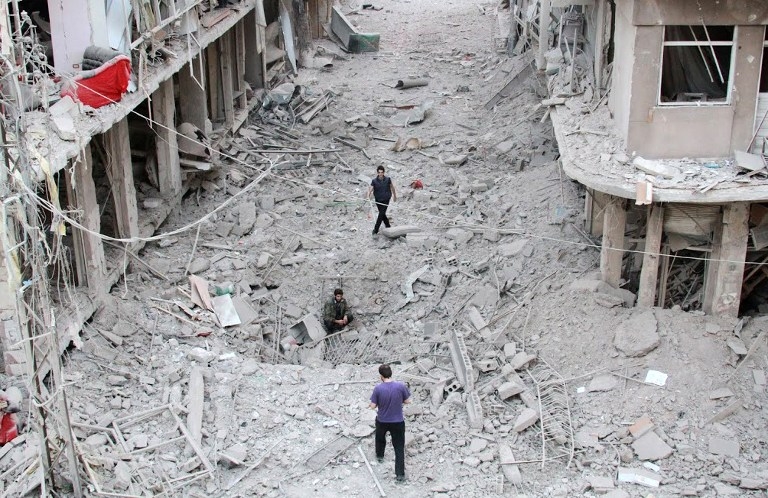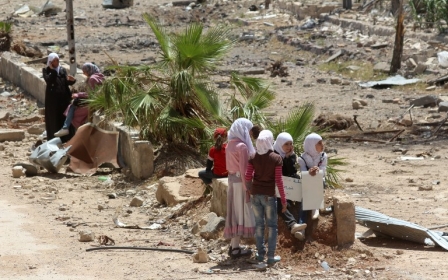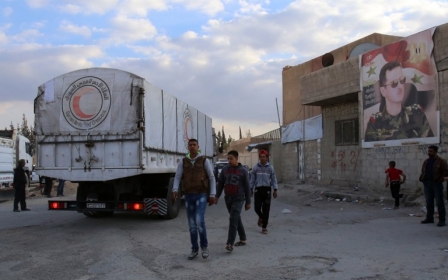Women in Syria's Daraya urge international community to halt Assad's siege

Middle East Eye published a passionate plea on Monday from 42 women living in and out of the besieged Syrian city of Daraya, which urged the international community to intervene and halt Syrian President Bashar al-Assad’s use of napalm on the city.
The letter, headlined “On napalm and starvation: An open letter to the world from the women of Daraya,” chronicles how the Syrian government has besieged and bombed the city, including utilising napalm, a chemical weapon banned by international law. The writers outline its use against civilians, including a napalm bombing on a hospital that put it “completely out of action”.
On top of napalm attacks, the women also detail how Assad has bombed and cut off access to basic necessities such as food and electricity for years, using “starvation as a weapon”.
“At the start of 2013, the regime cut Daraya off from all basic services – electricity, water for drinking and household use and communications. Throughout the siege, regime forces have used starvation as a weapon. Now, children and adults alike are suffering from severe malnutrition,” it read.
“For more than two months, the residents of Daraya have lived with daily, continuous bombing by regime forces. We have counted the weapons used: 1,805 barrel bombs and 729 high-explosive earth-to-earth missiles. These have set fire to agricultural land and the crops that represented the sole food source for the besieged residents of the city,” the letter added.
With these violations from the government, the women concluded, the international community must step up and stop Assad.
“At the start of 2013, the regime cut Daraya off from all basic services – electricity, water for drinking and household use and communications. Throughout the siege, regime forces have used starvation as a weapon. Now, children and adults alike are suffering from severe malnutrition.
Daraya had a pre-war population of around 80,000 people, but that has dropped by more than 90 percent, with remaining residents suffering from severe shortages and malnutrition.
In April, 47 women in the Syrian town sent an open letter saying they were on the verge of witnessing their children and relatives starve to death if aid did not reach them soon.
Since November 2012, when the government's siege on Daraya started, residents have survived off food smuggled in from a nearby town and whatever crops they could grow. Two years ago, the government cut off the town's water supplies.
This January, the crisis in the town quickly escalated when the road to the next town was cut off and frequent government bombing left Daraya dependent on drinking water siphoned from shallow wells and farmland contaminated with toxic chemicals, a resident told MEE in April.
They are among at least 486,700 Syrians who the UN said in its latest report are currently under siege. Siege Watch, an independent monitoring network, said that figure is more than a million, while the NGO Doctors Without Borders (MSF) puts it at almost 2 million.
Although opposition groups, including the Islamic State, hold some blockaded areas, forces loyal to the Syrian government enforce the majority of the sieges.
New MEE newsletter: Jerusalem Dispatch
Sign up to get the latest insights and analysis on Israel-Palestine, alongside Turkey Unpacked and other MEE newsletters
Middle East Eye delivers independent and unrivalled coverage and analysis of the Middle East, North Africa and beyond. To learn more about republishing this content and the associated fees, please fill out this form. More about MEE can be found here.




